RECRUITMENT for the academic year 2022/2023
LINK TO THE ELECTRONIC RECRUITMENT SYSTEM
of the Grażyna and Kiejstut Bacewicz University of Music in Łódź
CLICK
In order to apply for studies at the Grażyna and Kiejstut Bacewicz University of Music in Łódź, please follow the instructions below:
- Create an account in the Electronic Recruitment System by providing your e-mail address and password.
- Check the confirmation of your registration sent to the e-mail address you provided during registration.
- Memorize your password. You will use it every time you log in to the system.
- Log into the system, enroll and complete the required data.
- Fill in the electronic registration form
- Select the field of study at a given form and level of education within the deadline set by the University (My fields of study).
Remember that the date given as the end of the enrollment process is the last day for you to send scans of required documents through the electronic enrollment system. - Fill in your details (My data).
Remember to provide a phone number, where you can be contacted about the recruitment procedure. - Upload a photo of yourself (no headgear, against a light background). This photo will also be included in your student ID card (My Data).
- Fill in your address of residence and your postal address, to which you will receive the decision from the University.
- Select the field of study at a given form and level of education within the deadline set by the University (My fields of study).
- >Make the enrollment payment for the chosen field of study within the deadline of the electronic enrollment (My payments).
- Upload the required recruitment documents (My Documents).
- Once you become a candidate, the University will set a date (i.e. day, time) for the entrance exam (according to the recruitment schedule).
Check the date of the exam date on your individual account in the Electronic Recruitment System.
You will become a candidate for studies after registering, completing the required data, address, uploading a photo, choosing the field of study and after paying the recruitment fee.
It is obligatory to send scans of the required documents through the Electronic Recruitment System.
You will download the application for admission to studies from the Electronic Recruitment System (My documents).
Details of recruitment for studies can be found at www.amuz.lodz.pl in the "For the candidate" (Dla kandydata) tab.
Full-time, first and second cycle studies – 30 May 2018
- The doctoral traineeship is a form of education to which candidates - foreigners with qualifications of long-cycle Master's programs or second-cycle studies are admitted.
- The University of Music may conduct a doctoral traineeship in the area of education related to at least one field of study conducted by the University.
- The University of Music may conduct a doctoral traineeship in the following fields:
- instrumental studies in the following specializations: piano, organ, harpsichord, accordion, guitar, harp, violin, viola, cello, double bass, flute, clarinet, oboe, bassoon, saxophone, horn, trumpet, trombone, tuba, percussion
- performing arts in the specialization of vocal and acting performance
The payment for one year of traineeship is PLN 21 600
RECRUITMENT DOCUMENTS
- The candidate is required to submit the following documents:
for formal verification:
– a signed application for admission to a doctoral traineeship,
– Master's degree in art or an equivalent diploma translated into Polish by a certified sworn translator,
– curriculum vitae with particular emphasis on the education path and conducted activity,
– one current photograph compliant with the requirements for issuing identity documents,
– confirmation of enrollment payment fee (PLN 150),
for substantive verification:
– list of artistic / scientific achievements along with the documents confirming these achievements. - In addition, each candidate is required to send a presentation in a form of a recording for the assessment of skills by the Examination Committee.
THE DEADLINE FOR SUBMITTING THE DOCUMENTS
-
12th September 2022
CONTACT
-
Ms Rui Liu
E-mail: This email address is being protected from spambots. You need JavaScript enabled to view it.
- Rules and Regulations of the Doctoral Traineeship Program
at the Grażyna and Kiejstut Bacewicz University of Music in Lodz download .pdf file - The Doctoral Traineeship Program for Foreigners download .pdf file
IN THE GRAZYNA AND KIEJSTUT BACEWICZ UNIVERSITY OF MUSIC IN LODZ
INTERNSHIP OBJECTIVES
- improvement of the performing skills,
- work on the interpretation and repertoire,
- artistic development.
TYPES OF CLASSES
- individual in the field of solo playing an instrument,
- individual in the field of playing an instrument with an accompanist,
- individual in the field of solo singing,
- individual in the field of solo singing with an accompanist.
CANDIDATES
- persons who have completed first or second cycle studies or long-cycle Master's programs may apply for an artistic internship.
THE COST OF ANNUAL ARTISTIC TRAINING FOR FOREIGNERS
in English language
(main subject, English language, humanistic and social subject)
- 30 hours without accompanist – not less than PLN 17 000
- 30 hours (including 15 hours with an accompanist) – not less than PLN 22 000
THE COST OF A SEMESTER ARTISTIC TRAINING FOR FOREIGNERS
in English language
(main subject, English language, humanistic and social subject)
- 15 hours without accompanist – not less than PLN 8 500
- 15 hours (including 7.5 hours with an accompanist) – not less than PLN 11 000
REQUIRED DOCUMENTS
- Application addressed to the Rector of the University with a request for admission to the internship (precise specification of the duration, specialization, etc.).
- Application to the Dean of the Faculty with a request for assignment to the indicated teacher.
- Curriculum vitae.
- One current photo.
- Copy of the diploma (copy) of graduation and the diploma supplement (copy) issued by the university. The original documents are to be presented by the candidate for inspection while submitting them to the Students Office. When sending documents by post, the originals must be attached in addition to the copies.
- Photocopy of ID card or passport (in the scale of 1x1).
- Recordings for assessing the skills of the candidate for the internship.
- Confirmation of the enrollment payment fee (PLN 150)
THE DEADLINE FOR SUBMISSION OF THE DOCUMENTS
- in the winter semester – by the 10th September 2022
- in the summer semester – by the 5th February 2023
IMPORTANT!
- It is the teacher who decides about admission to the artistic internship.
Łódź is the third most populated city in Poland, located in the centre of the country. Owing to its textile industry, it used to be the main industrial city in Poland. However, recently it has been turning into a cultural centre, mainly due to a big number of festivals, exhibitions, music events, concerts and other artistic projects.
Łódź is also a significant academic centre in Poland with more than 120,000 students. The city has over 25 schools of higher education, including large reputable institutions such as the University of Łódź, the Technical University of Łódź, Medical University of Łódź, or prestigious world-famous art schools like the Strzemiński Academy of Fine Arts and Design, the Grażyna and Kiejstut Bacewicz University of Music, or the Lodz Film School.
The unique (on a European scale) 19th-century architecture of the city is now regaining its splendor. Many old factories and industrial facilities have been revitalized and converted into lofts, commercial, leisure or art centers. One of such places, which used to belong to Izrael Poznański, is now a shopping and cultural center called “Manufaktura”. It is one of the biggest centers of that kind in Europe and a favorite meeting place providing entertainment for tourists and city residents.
Recently modernized and extended the Władysław Reymont Airport in Łódź offers cheap flights to a number of European destinations. There is also a number of train and coach connections between Łódź and other Polish and European cities.
fot. M. Kawczyński
Welcome to the University of Music in Łódź! Come and study with us in a unique and exciting atmosphere of this place: in a monumental Neo-Renaissance palace as well as in two modern buildings with concert halls and plenty of lecture and practice rooms. Here you can study with the most distinguished professors and artists. Our students win numerous prizes at international competitions and festivals. Studying at the University of Music in Łódź also means an intensive artistic activity: concerts with the academic orchestra, choir, chamber ensembles, jazz big-band, and student opera productions. Studying with us will give you great satisfaction and opportunities for your future career.
HISTORY
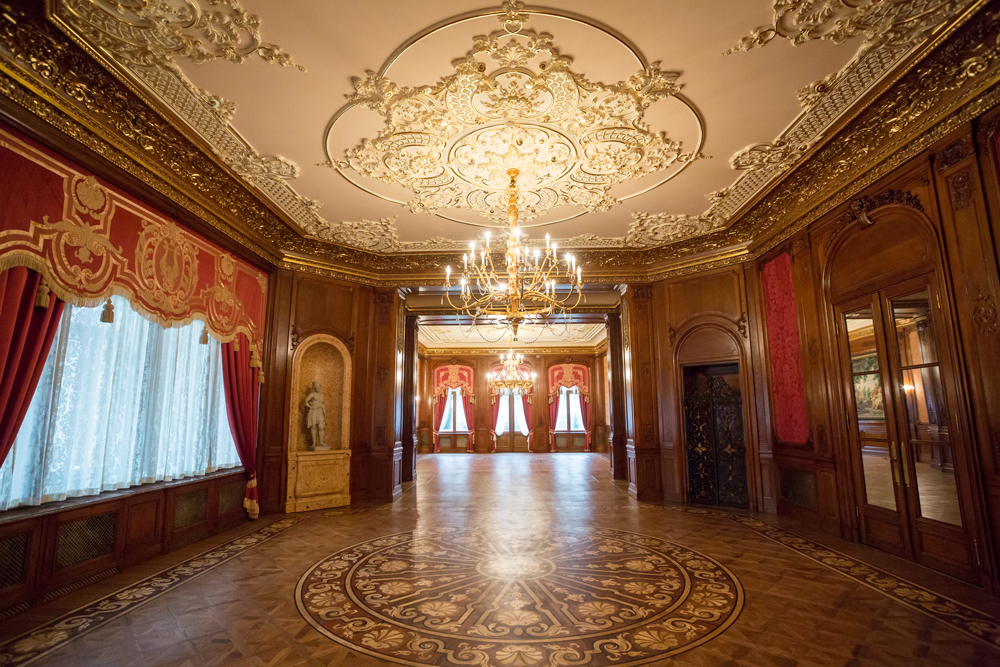 The history of the University of Music in Łódź goes back to the early years of the 20th century. At the time Helena Kijeńska-Dobkiewiczowa founded a Music Conservatory, where she gathered a team of outstanding musicians and teachers. After WWII, the school was reactivated, first as the State Music Conservatory (1945) and then as the State Higher School of Music (since April 1946). The seat of the School was moved to the palace at 32 Gdańska St., erected in the 1900s for Karol Poznański, the son of one of the richest textile industrialists Izrael Kalmanowicz Poznański.
The history of the University of Music in Łódź goes back to the early years of the 20th century. At the time Helena Kijeńska-Dobkiewiczowa founded a Music Conservatory, where she gathered a team of outstanding musicians and teachers. After WWII, the school was reactivated, first as the State Music Conservatory (1945) and then as the State Higher School of Music (since April 1946). The seat of the School was moved to the palace at 32 Gdańska St., erected in the 1900s for Karol Poznański, the son of one of the richest textile industrialists Izrael Kalmanowicz Poznański.
In 1982, the Higher School of Music gained the qualifications of University and in 1999 it adopted the name of Grażyna and Kiejstut Bacewicz. The patrons are two distinguished artists born in Łódź: Grażyna Bacewicz, an excellent composer and violinist, and Kiejstut Bacewicz, her brother, a great chamber musician, pianist and pedagogue. Over seventy years of its activity, the University of Music in Łódź educated a broad array of eminent personalities in the world of music; an array of artists who made the name of their Alma Mater famous in Poland and all over the world and who successfully testify to a high level of Polish music education. Among its renowned graduates there are such artists as Jan Krenz, Urszula Kryger, Teresa Kubiak, Piotr Pławner, Kazimierz Serocki, Wanda Wiłkomirska, Teresa Żylis-Gara, and many others. The Senate of the University of Music conferred the greatest academic honour – the honoris causa doctorate in Musical Arts – on thirteen distinguished artists, significant personalities of music life of Poland, Łódź and the University: Aleksander Tansman (1986), Prof. Kiejstut Bacewicz (1993), Prof. Zenon Płoszaj (1996), Prof. Franciszek Wesołowski (1999), Prof. Teresa Kubiak (2005), Prof. Wanda Wiłkomirska (2006), Jerzy Semkow (2013), Prof. Zygmunt Krauze (2015), Prof. Stanisław Firlej (2015), Prof. Teresa Żylis-Gara (2016), Irena Santor (2017), Jan Krenz (2018) and Kevin Kenner (2018).
STAFF
The University offers the highest quality education provided by high level specialists who give classes in instrumental and vocal performance, conducting, composition, eurhythmics, choreography and music therapy, as well as experienced teachers giving lectures on music theory. The University also conducts studies in specialty of jazz performance, musical theater, sound engineering and stage vocal performance, as well as music in media studies. The study program is often enriched with additional master classes, seminars, workshops, or lectures (many of them given by visiting professors from renowned institutions from all over the world).
ACADEMIC YEAR
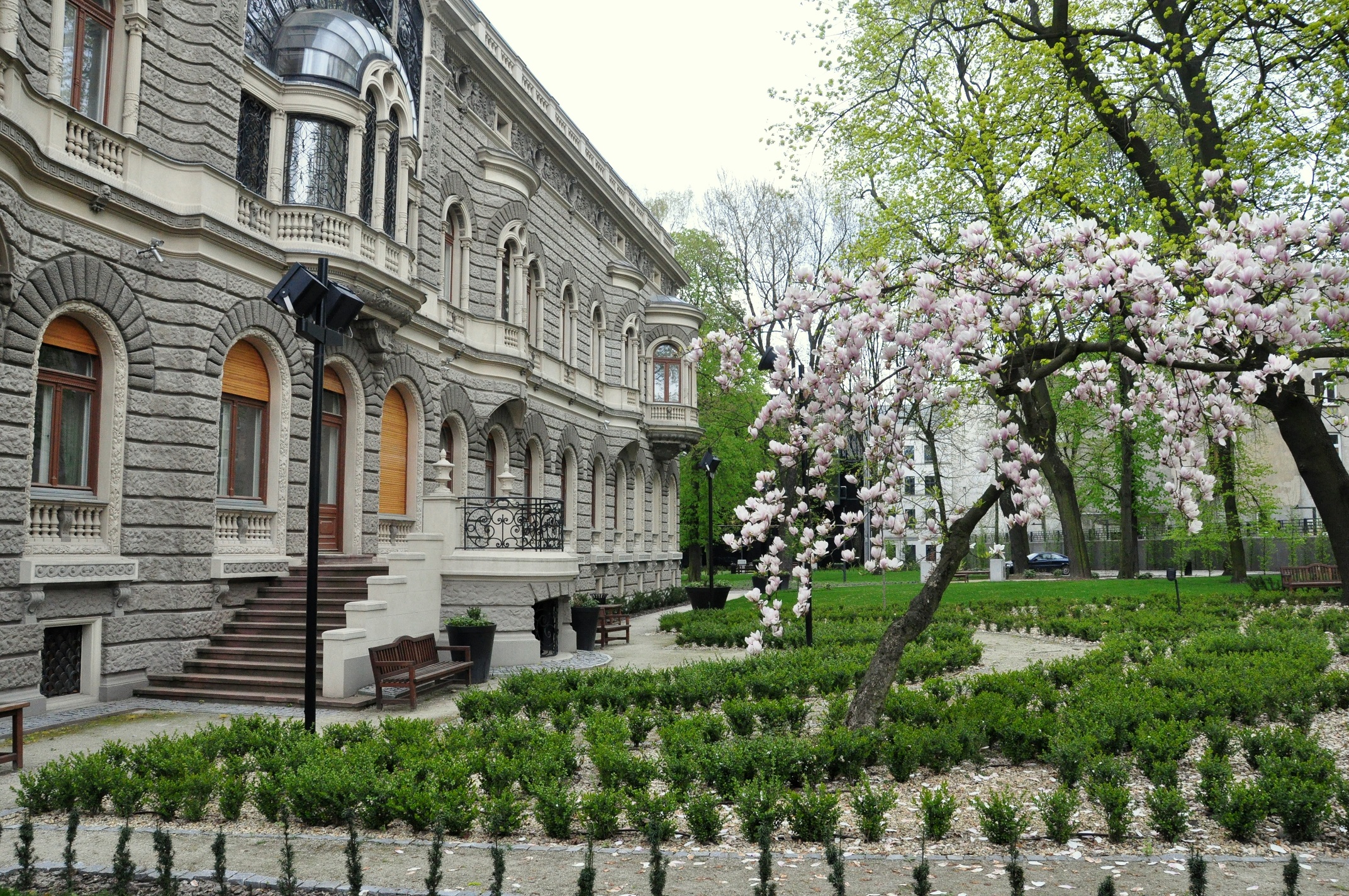
The academic year in Poland is divided into two semesters – winter and summer, each lasting 15 weeks. The winter semester usually starts on 1st October and lasts till mid-February, with Christmas break of about ten days. The examination session usually begins at the end of January and lasts for two or three weeks. The summer semester starts in mid-February and ends in June, with a one-week break for Easter. Summer holidays take three months – from the beginning of July till the end of September, but only for the students who passed all their exams during the summer examination session (two/three weeks in June). Those who did not succeed re-take their exam(s) in September.
Entrance exams are obligatory and are held at the end of June and in July.
INTERNATIONAL RELATIONS
The University of Music in Łódź actively participates in the Erasmus+ Programme, which gives every student the possibility to study at a chosen partner institution. The list of Erasmus+ partnerships comprises over 60 higher education schools, i.a. in Austria, Italy, Germany, Lithuania, Spain, Slovakia, the Netherlands, the United Kingdom, Belgium, Finland and other countries. Apart from the Erasmus exchange programme, our students often participate in various workshops, competitions and master classes abroad. The University extends its international contacts as a long-time member of AEC (The Association Européenne des Conservatoires, Académies de Musique et Musikhochschulen). We are also a member of the European Opera Academy – a platform for professional opera and musical theatre education. On the basis of individual agreements and projects, our institution also cooperates with some Chinese conservatoires, education agencies and culture centres (i.a. Beijing, Chengdu, Shanghai, Xiamen).
FACILITIES
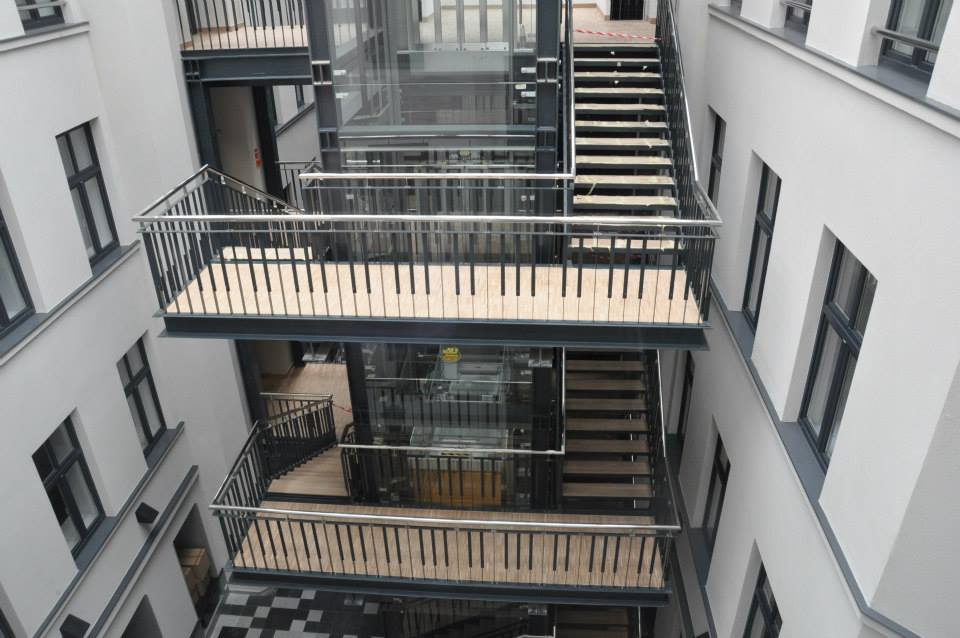
The University of Music is located in a historic palace, which gives the place timeless charm and creates a unique atmosphere to study and perform. At the same time, the University modernizes and develops its infrastructure for better comfort of present and prospective students.
In October 2013, the University officially opened a newly-built Concert Hall with great acoustics, excellent recording and sound system equipment, a professional recording studio and broad didactic base.
At the beginning of the academic year of 2014/2015, in a close proximity of the palace, we opened a modern building of the Regional Centre for Culture, Education and Music Documentation, which significantly broadens educational and cultural offer of the institution. On four floors of the building, one may find a chamber hall for 200 people, a library and sound recordings library, a recording studio, a sound laboratory, numerous practice rooms and lecture halls.
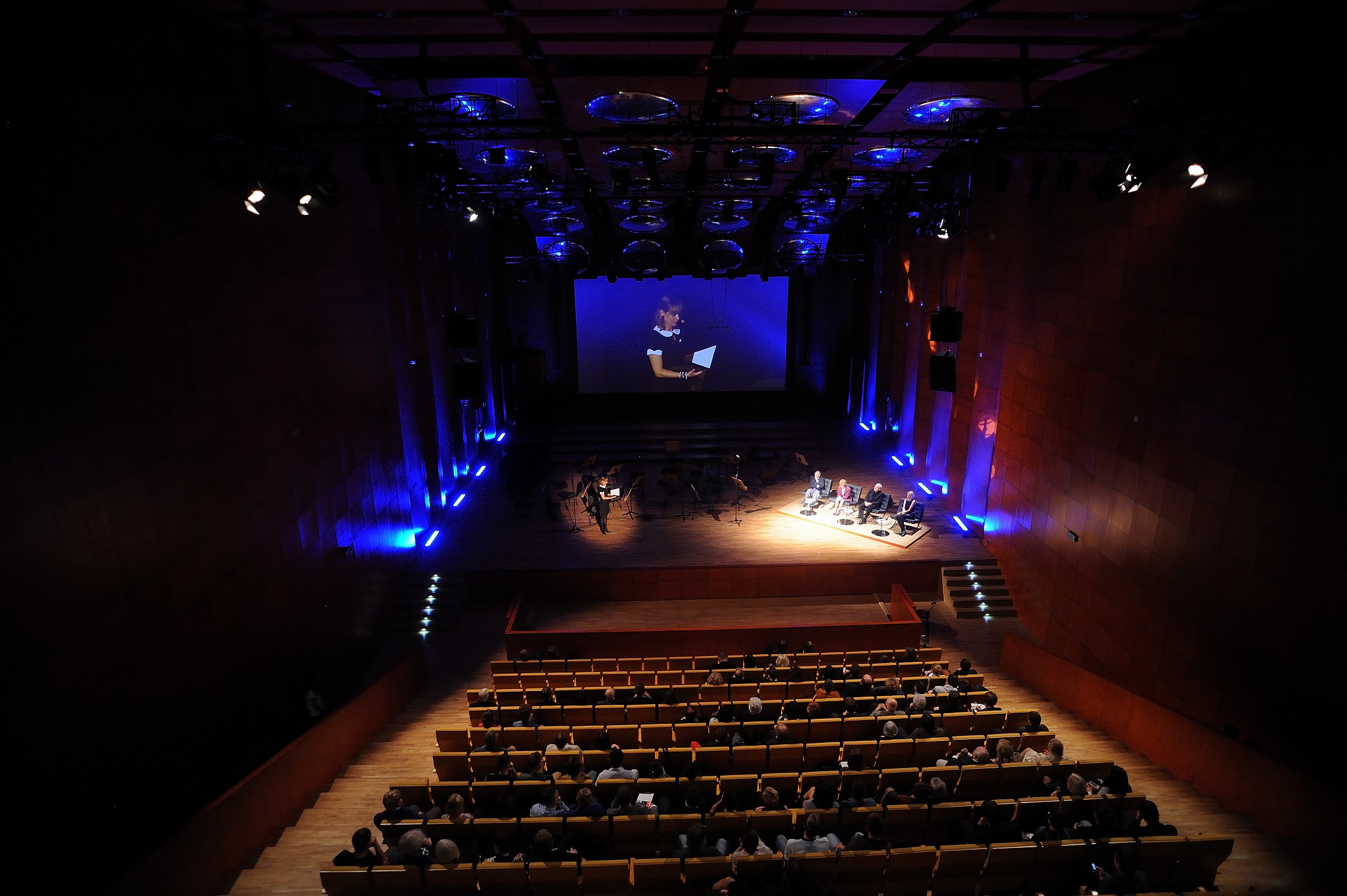
NEW INSTRUMENTS
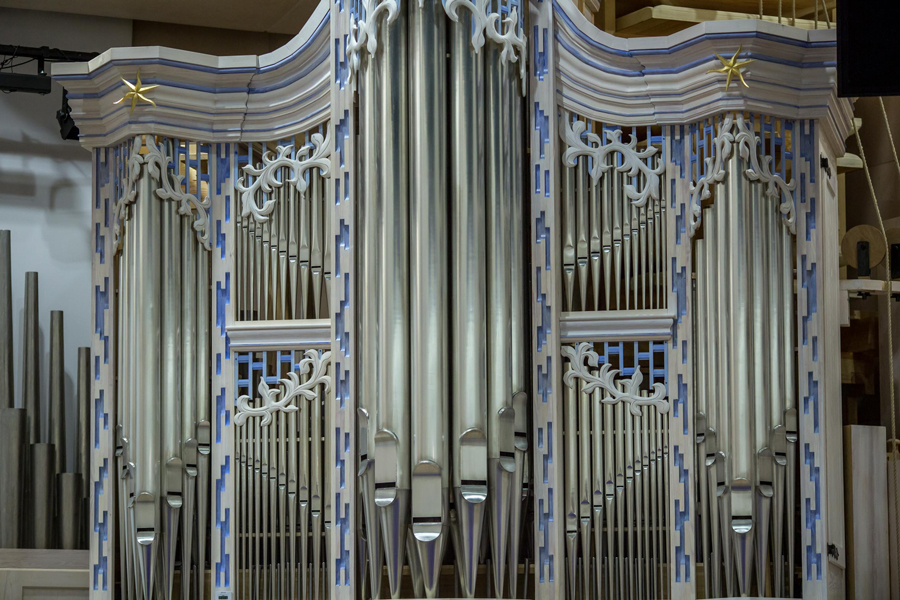
In academic year of 2018/2019 the University carried out a wide-ranging project, worth 20 million zloty, involving purchase of numerous instruments: grand pianos, woodwinds and brass, string, percussion and early instruments (including two harpsichords), organ and electronic keyboard instruments.
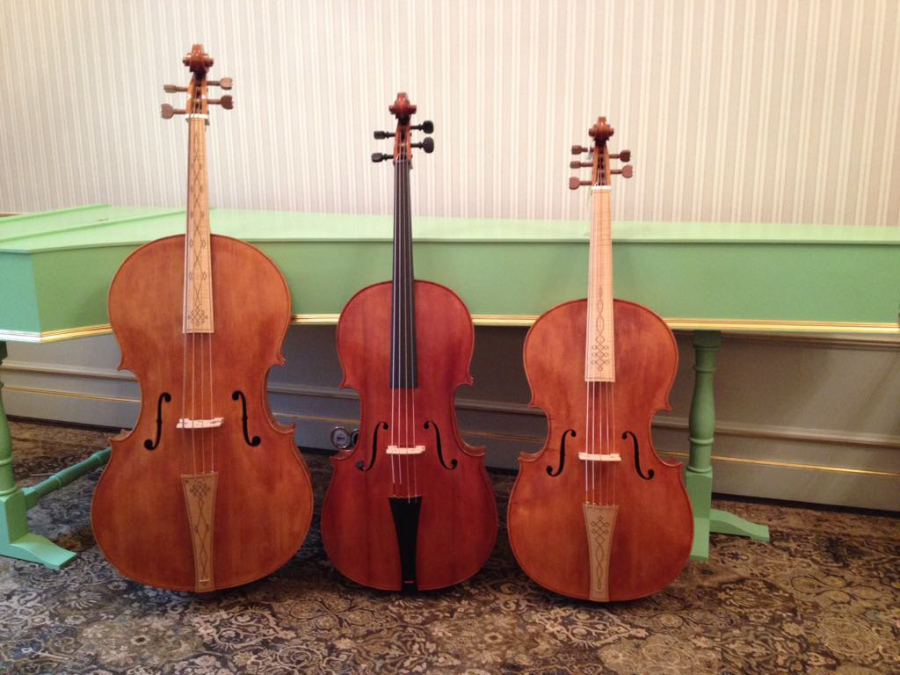
DORMITORY
The University has its own student Dormitory (Hall of Residence), situated in immediate proximity of the Concert Hall at 2a Żubardzka Street. In the academic year of 2017/2018, the dormitory building was thoroughly renovated and rebuilt. Students have 24 double rooms and 12 triple rooms at their disposal, as well as shared leisure area and practice rooms. Each double room is provided with en suite kitchen and bathroom. Occupants of triple rooms have access to shared kitchen facilities and high-standard bathrooms on the same floor. All rooms are equipped with a free internet connection. Modern reception desk, laundry and drying room are located on the ground floor. The reception desk, surveillance system of the whole building and multilingual staff working 24/7 ensure protection against potential intruders. The interior of the building is disabled-friendly (no doorsteps).
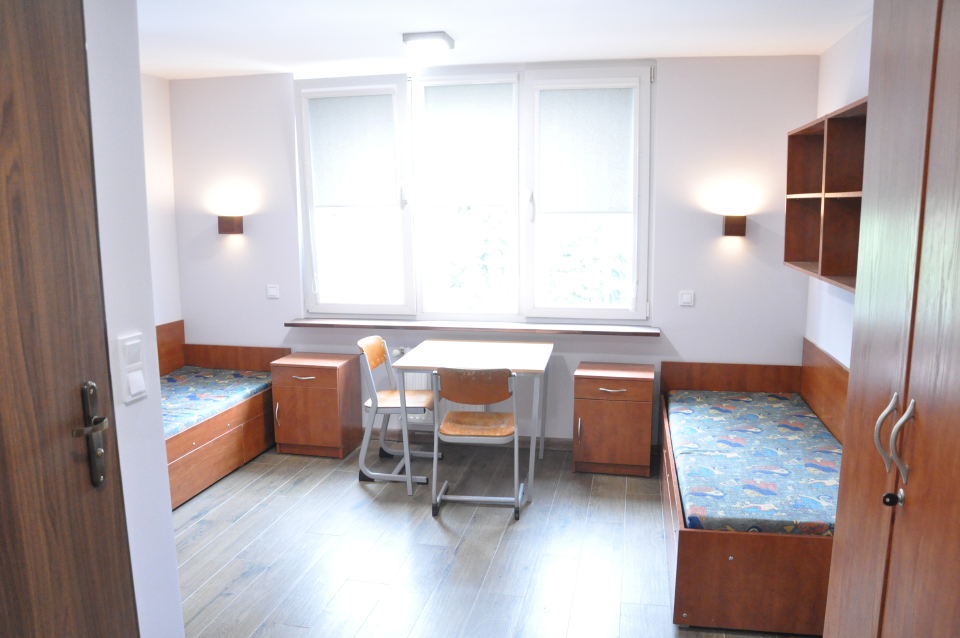
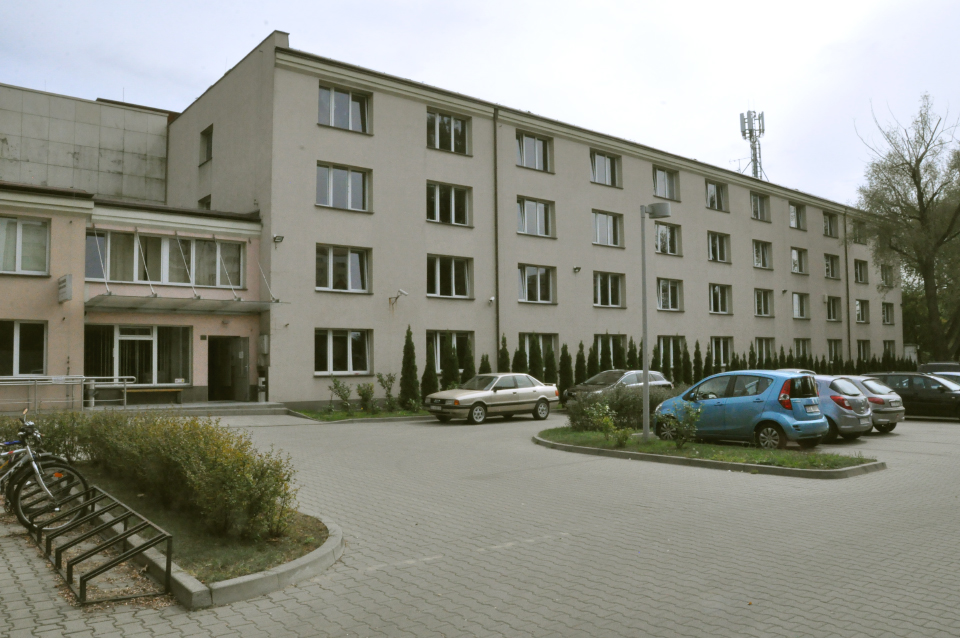
Rector
Prof. Cezary Sanecki, DA hab.
Vice Rector for Didactic Affairs
Prof. AM Elżbieta Aleksandrowicz, DA hab.
Vice Rector for Student and Artistic Affairs
Prof. Beata Zawadzka-Kłos, DA hab.
Chancellor
Agnieszka Grochulska, M.A.
Dean
Faculty of Composition, Theory of Music, Conducting, Eurhythmics and Music Education
Marcin Wolniewski, DA hab.
Deputy Deans
Faculty of Composition, Theory of Music, Conducting, Eurhythmics and Music Education
Prof. AM Olga Hans, DA hab.
Barbara Dominiak, DA
Dean
Faculty of Piano, Organ, Harpsichord, Early Music and Jazz
Prof. Irena Wisełka-Cieślar, DA hab.
Deputy Dean
Faculty of Piano, Organ, Harpsichord, Early Music and Jazz
Anna Liszewska, DA
Dean
Instrumental Faculty
Prof. AM Tomasz Król, DA hab.
Deputy Deans
Instrumental Faculty
Prof. AM Katarzyna Przybylska, DA hab.
Maciej Staszewski, DA hab.
Dean
Faculty of Vocal and Acting Performance
Prof. Urszula Kryger, DA hab.
Deputy Dean
Faculty of Vocal and Acting Performance
Agata Górska-Kołodziejska, DA
Head of Doctoral Studies
Prof. Jolanta Gzella, DA hab.
Head of Choreography and Dance Techniques Studies
Jacek Owczarek, DA
Head of Music Therapy Studies
Prof. AM Ewa Kowalska-Zając, DA hab.
Head of Interfaculty Pedagogical Studies
Ewa Kumik, DA
Head of Foreign Language Studies
Elżbieta Fesnak-Przybylska, M.A.
Head of Physical Education and Sport Studies
Grzegorz Tarnowski, M.A.
Heads of Departments
Department of Composition
Prof. Sławomir Kaczorowski, DA hab.
Department of Theory of Music
Prof. Ryszard D. Golianek, DA hab.
Department of Conducting
Prof. Jerzy Swoboda, DA
Department of Eurhythmics and Piano Improvisation
Prof. AM Elżbieta Aleksandrowicz, DA hab.
Department of Music Education
Dawid Ber, DA hab.
Department of Piano
Prof. AM Mariusz Drzewicki, DA hab.
Department of Harpsichord and Early Music
Prof. Ewa Piasecka, DA hab.
Department of Organ and Church Music
Krzysztof Urbaniak, DA hab.
Department of Chamber Music
Prof. AM Witold Holtz, DA hab.
Department of Jazz
Prof. AM Adam Manijak, DA hab.
Department of String Instruments
Prof. AM Łukasz Błaszczyk, DA hab.
Department of Wind Instruments
Prof. Janusz Kopczyński, DA hab.
Department of Contemporary Music Performance, Accordion, Guitar and Harp
Prof. AM Jacek Dulikowski, DA hab.
Department of Vocal Studies
Prof. Piotr Miciński, DA hab.
Department of Musical and Choreography
Prof. AM Anna Dzionek-Kwiatkowska, DA hab.
Full-time, first and second cycle studies – 20-29 June 2018
FEE FOR THE ENTRANCE EXAM: 150 PLN
Information on the fees applicable to the 2022/2023 academic year will be announced soon.
FEES applicable in the academic year 2021/2022:
- Foreigners enrolling in 1st or 2nd cycle studies conducted in English are obliged to pay the following fees (covering one year of studies):
- instrumental studies: PLN 26,000
- vocal studies: PLN 31,000
- Fee for postgraduate instrumental or vocal studies: PLN 15,400
- Fee for preparation course of one year is PLN 21,000
- Fee for one year of artistic internship, in Polish, with no accompanist: PLN 6,300 (one hour per week of the main subject)
- Fee for one year of artistic internship, in Polish language, with accompanist: PLN 9,450 (one hour per week of the main subject with accompanist)
- Fee for one year of artistic-scholarly internship, in English language, with no accompanist: PLN 17,000 (one hour per week of the main subject without accompanist, English language, history of musical form and styles)
- Fee for one year of artistic-scholarly internship, in English language, with accompanist: PLN 22,000 (one hour per week of the main subject with accompanist, English language, history of musical form and styles)
- Persons of Polish origin undertaking education on the paid basis pay the fees reduced by 30%
- Foreigners pay the above fees into the University of Music bank account
- The fees can be paid in two installments. The deadline for the payment for the first term is the 15th October, for the second term the 15th March
- No payment on the dates specified above will result in not admitting to the term exams as well as in charging statutory interest from the day when the payment is due
CANDIDATES ENTITLED TO NON-FEE STUDIES
- citizens of Poland;
- foreigners with residence permit;
- foreigners granted the refugee status given by the Republic of Poland;
- foreigners granted a temporary protected status in the territory of the Republic of Poland;
- migrating workers, being citizens of European Union countries; Swiss Confederation or member states of origin of European Free Trade Association (EFTA) – parties of the agreement on European Economic Area and members of their families if living in the territory of the Republic of Poland;
- foreigners granted, in the territory of the Republic of Poland, permission for long-term residence of European Union;
- foreigners granted, in the territory of the Republic of Poland, permission for temporary residence in regard to circumstances mentioned in art. 127, art. 159 item 1 or art. 186 item 1 point 3 or 4 of the Act on foreigners from the 12th December 2013 (Journal of Laws no 1650);
- foreigners granted subsidiary protection in the territory of the Republic of Poland;
- citizens of European Union countries, member states of origin of European Free Trade Association (EFTA) – parties of the agreement on European Economic Area or Swiss Confederation;
- holders of Polish Card.
List of required documents for the 1st cycle studies (foreign students)
- Signed application for admission to studies (available through the on-line recruitment)
- Copy of passport (the original document to be presented)
- Copy of the residence card (if applicable; the original document to be presented)
- Copy of the Pole’s Card (if applicable; the original document to be presented)
- Document confirming health insurance for the entire study period (if the insurance covers a period of time shorter than the study time, there should be submitted a relevant statement, wherein the candidate undertakes to prolong the insurance)
- Medical examination certificate of no contraindications to studying in the selected specialization and type of education
- Proof of payment of the application fee
- Two printed photos (compliant with the ID document photo standards) and one photo in an electronic version
- Diploma of secondary education (legalized or stamped with apostille)
- Secondary school-leaving examination certificate (legalized or stamped with apostille)
- Certification stating that a given certificate entitles the candidate to undertake studies at higher education institutions in the country of issuance (the certification is essential when there is no relevant annotation on the certificate/diploma)
- Documentation with the secondary education transcript of records, including a list of courses, obtained grades, number of hours assigned to particular subjects (legalized or stamped with apostille)
- Nostrification of the certificate (if the candidate does not have one, it should be delivered by the end of the first term)
- Document certifying the command of Polish (optional)
- (If the candidate is under 18) Written consent of parents/legal guardians to participation of the candidate in the recruitment process and signing the contract upon the candidate’s admission to the University. The consent should bear a legible signature and be translated into Polish.
- Certificate of the command of English (for study programs in English)
- FCE (First Certificate in English)
- CAE (Certificate in Advanced English)
- CPE (Certificate of Proficiency in English)
- BEC 2 (Business English Certificate 2)
- BEC 3 (Business English Certificate 3)
- CEIBT (Certificate in English for International Business and Trade)
- IELTS (International English Language Testing System)
– above 6 points - TOEFL
– min. 500 pts in paper-based test (PBT)
– min. 200 pts in spoken exam (TSE)
– min. 3.5 pts in written work (TWE)
- In addition:
- for the specialization of eurhythmics – program for the piano examination;
- in the field of instrumental studies, for the specializations of piano, jazz piano, harpsichord, organ, guitar, jazz guitar, bass guitar, accordion – program for the major instrument examination;
- in the field of instrumental studies, for the specializations of early instruments, violin, viola, cello, double bass, flute, oboe, clarinet, bassoon, saxophone, French horn, trumpet, trombone, tuba, harp, percussion, jazz music – program for the major instrument examination as well as scores for an accompanist; if the candidate fails to deliver the scores, it is assumed that he/she provides an accompanist by oneself;
- for the specialization of vocal and acting performance – program for the solo singing examination as well as scores for an accompanist; if the candidate fails to deliver the scores, it is assumed that he/she provides an accompanist by oneself.
PLEASE NOTE that documents have to be translated into Polish by a certified translator entered into the register of certified translators run by the Ministry of Justice of the Republic of Poland; the candidate is also allowed to submit a translation authorised by the consul of the Republic of Poland, performing one’s duties in a given country.
List of required documents for the 2nd cycle studies (foreign students)
- Signed application for admission to studies (available through the on-line recruitment)
- Copy of passport (the original document to be presented)
- Copy of the residence card (if applicable; the original document to be presented)
- Copy of the Pole’s Card (if applicable; the original document to be presented)
- Document confirming health insurance for the entire study period (if the insurance covers a period of time shorter than the study time, there should be produced a relevant statement, wherein the candidate undertakes to prolong the insurance)
- Medical examination certificate of no contraindications to studying in the selected specialization and type of education
- Proof of payment of the application fee
- Two printed photos (compliant with the ID document photo standards) and one photo in an electronic version
- Diploma of completion of the 1st or 2nd cycle studies, or long-cycle Master’s studies (legalized or stamped with apostille)
- Supplement, or Transcript of Records, including information on the completed courses, received grades, number of ECTS credits, number of hours (legalized or stamped with apostille)
- Certification stating that the candidate’s certificate/diploma entitles the candidate to apply for admission to the 2nd cycle studies in the country where the educational institution issuing the certificate/diploma in question operates (the certification is necessary when there is no relevant annotation on the certificate/diploma)
- Document confirming the command of Polish (in the absence of this certification, the person accepting documents should be informed about the fact)
- In addition:
- in the field of instrumental studies, for the specializations of piano, harpsichord, organ, guitar, accordion – program for the major instrument examination;
- in the field of instrumental studies, for the specializations of early instruments, violin, viola, cello, double bass, flute, oboe, clarinet, bassoon, saxophone, French horn, trumpet, trombone, tuba, harp, percussion – program for the major instrument examination as well as scores for an accompanist; if the candidate fails to deliver the scores, it is assumed that he/she provides an accompanist by oneself;
- for the specialization of vocal and acting performance - program for the solo singing examination as well as scores for an accompanist; if the candidate fails to deliver the scores, it is assumed that he/she provides an accompanist by oneself.
PLEASE NOTE that documents have to be translated into Polish by a certified translator entered into the register of certified translators run by the Ministry of Justice of the Republic of Poland; the candidate is also allowed to submit a translation authorised by the consul of the Republic of Poland, performing one’s duties in a given country.
conducted in English
Faculty of Instrumental Performance
Field of study: INSTRUMENTAL STUDIES
Full-time 1st cycle studies (3 years)
majors:
piano, harpsichord, organ, violin, viola, cello, double bass, flute, oboe, clarinet, bassoon, saxophone, horn, tuba, trombone, trumpet, percussion
The study program is addressed to musically talented candidates with a certificate of secondary education who want to continue music education and develop their skills in the field of a chosen instrument performance. Candidates must demonstrate both the ability to play the instrument and general music knowledge at the level of a secondary music school.
GRADUATE PROFILE
-
The graduate receives a diploma of the 1st cycle studies in a chosen instrument performance and is entitled to apply for the 2nd cycle studies. The graduate has necessary qualifications to work as a musician – instrumentalist: soloist and chamber musician.
- The graduate of the 1st cycle studies possesses the following competences:
- has knowledge of basic repertoire related to his/her major, as well as performance and artistic skills enabling him/her to convey information and artistic ideas understandable to specialists and those unconnected with music;
- can freely and creatively use the means of artistic expression within his/her major; can apply knowledge of history of music, literature and broadly understood cultural context in order to develop his/her own artistic ideas; with the latest artistic trends in mind, he/she is able to prepare an interpretation of a musical piece and perform it in public; has the ability to develop joint artistic projects in chamber ensembles and various types of orchestra;
- has communication skills and ability to cooperate with other artists in order to develop joint projects.
ENTRANCE EXAMS
- MAJOR EXAM
MAJOR INSTRUMENT
Performance of the program at the level of a secondary music school diploma.
- PIANO
- J. S. Bach – Prelude and fugue (Das wohltemperierte Klavier).
- A whole classical sonata (recommended: a sonata by L. van Beethoven – the examination board may choose different movements).
- An etude by F. Chopin from op. 10 and op. 25 (excluding E major op. 10 no. 3, E flat minor op. 10 no. 6, C sharp minor op. 25 no. 7).
- A piece by F. Chopin. The program must be performed from memory.
- HARPSICHORD
- J. S. Bach – Prelude and fugue, or Fantasia and fugue, or a piece involving a fugue.
- A pre-classical or classical sonata (e.g. by W. F. Bach, C. Ph. E. Bach, J. Haydn, W. A. Mozart or L. van Beethoven).
- A virtuoso piece.
- Any selected piece. The program may be performed on the piano or harpsichord.
- ORGAN
- A piece from the pre-Bach era.
- A piece by Johann Sebastian Bach [prelude (fantasia, toccata) and fugue].
- A piece from the 19th-20th century.
- VIOLIN
- J. S. Bach – two movements of a chosen sonata and a partita for violin solo.
- One caprice.
- A concerto (1st movement, or 2nd and 3rd ones).
- VIOLA
- J. S. Bach – two movements of a chosen cello suite (transcribed for viola solo), or J. S. Bach – two movements of a chosen sonata or partita for violin solo (transcribed for viola solo).
- One caprice.
- A concerto (1st movement, or 2nd and 3rd ones). The program should be performed on viola. The Faculty Recruitment Board may allow to perform the program on the violin upon the request of the candidate who declares to take up studies in the major of viola (and meets all other requirements specified in the recruitment rules and regulations).
- CELLO
- J. S. Bach – one part of a suite for cello solo.
- A caprice – A. Piatti, or a double stops etude.
- Two contrasting movements of a sonata or concerto (1st movement with cadenza, or 2nd and 3rd ones)
- DOUBLE BASS
- Two parallel scales (major-minor), passages.
- A virtuoso piece (etude, caprice, tarantella or variations).
- Two movements of a sonata.
- A concerto (1st and 2nd movements, or 2nd and 3rd ones).
- A cantilena piece.
- WIND INSTRUMENTS
- Major and minor scales in different variants.
- One/two technical piece(s) (etude, caprice).
- A concerto or sonata.
- Any selected work.
(flute, oboe, clarinet, bassoon, saxophone, horn, trumpet, trombone, tuba)- PERCUSSION
- Vibraphone – solo piece or piece with accompaniment using four-mallet technique.
- Marimba or xylophone – solo piece or piece with accompaniment.
- Kettle drums – solo piece or piece with accompaniment.
- Snare drum – two diversified solo pieces:
1. one using rudiments,
2. one using classical technique, including tremolo, acciaccatura, irregular values and dynamic changes. - A multipercussion set – solo piece or piece with accompaniment.
- BASIC EXAMS
-
INDEPENDENT PREPARATION OF A PIECE (assigned time: one hour)
SIGHT-READING - AURAL PREDISPOSITIONS TEST
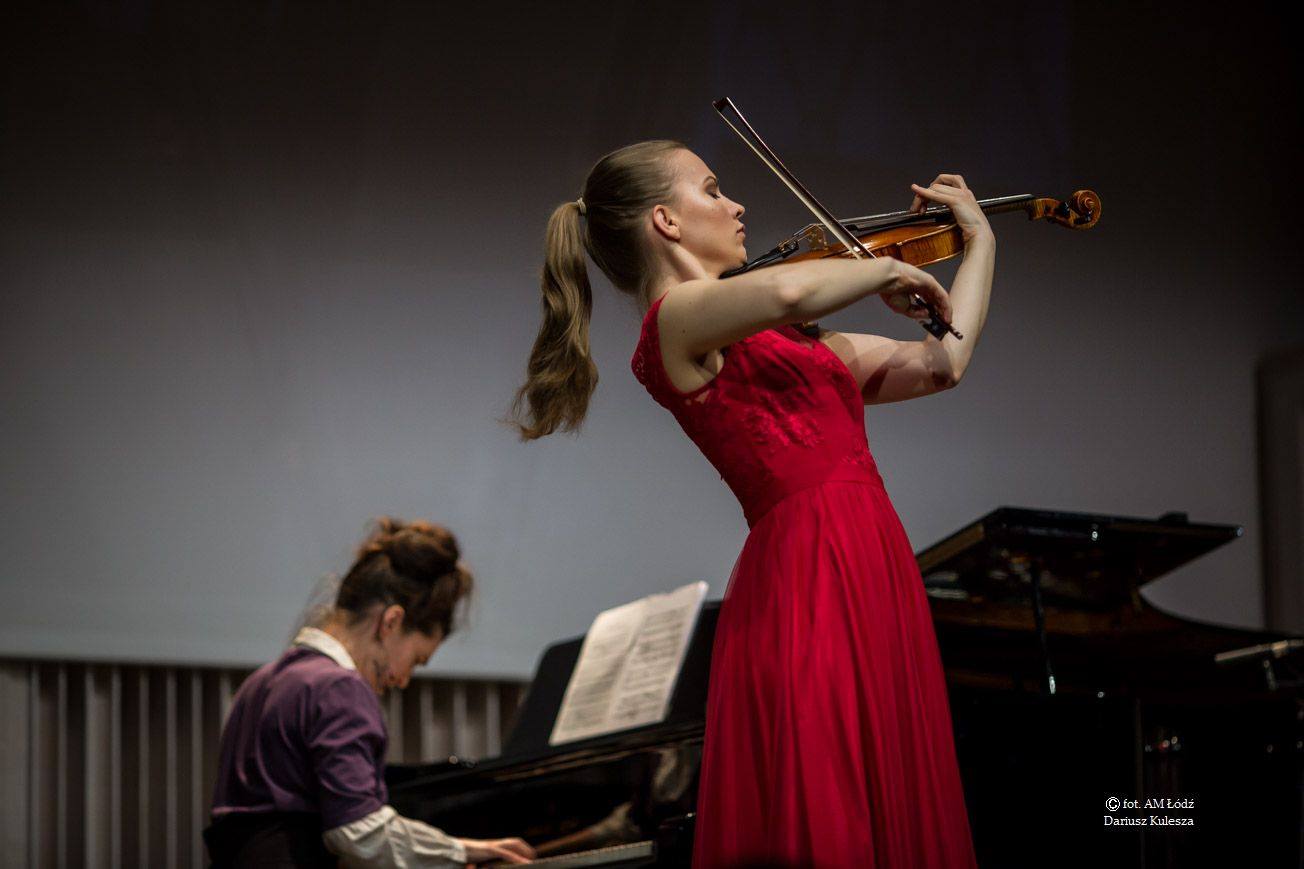
Faculty of Instrumental Performance
Field of study: INSTRUMENTAL STUDIES
Full-time 2nd cycle studies (2 years)
majors:
piano, harpsichord, organ, violin, viola, cello, double bass, flute, oboe, clarinet, bassoon, saxophone, horn, tuba, trombone, trumpet, percussion
The study program is addressed to the candidates with a diploma of the 1st cycle studies, who are knowledgeable about music and skilled in instrumental performance at the academy of music bachelor’s degree level. Each candidate is able to plan mindfully further music education, development of musical interests as well as future career path by selecting an appropriate module, that is a group of optional specialized courses. During a 2-year program, every student acquires additional skills by attending, along with obligatory courses, one module of specialized courses.
- For the piano major:
- soloist (only for candidates who received a minimum of 23 points in the major instrument entrance exam),
- chamber music. For the harpsichord and organ majors:
- soloist,
- chamber music. For the string instruments, wind instruments and percussion majors:
- virtuoso,
- chamber music,
- orchestral.
GRADUATE PROFILE
-
The graduate receives comprehensive education in art as a musician and instrumentalist with thorough theoretical and practical knowledge, able to pursue an independent stage activity. Based on the experience gained during studies, through a mindful selection of major, they can design their further career path on their own. They are prepared for enrolling in the postgraduate studies.
Pedagogical qualification, compliant with general educational standards for the profession of a teacher, is acquired simultaneously by attending courses within Pedagogical Studies.
- The graduate of the 2nd cycle studies has the following competences:
- based on enhanced theoretical knowledge and technical skills related to the major, the person is prepared for independent creative work in the profession of a musician – instrumentalist; he/she can interpret and perform music pieces autonomously, based on one’s own artistic ambitions and inspirations, at a high professional level and in accordance with stylistic requirements;
- demonstrates the ability to develop and expand a wide repertoire within the major, and potentially to specialize in a chosen area; has the ability to single-handedly initiate and develop artistic projects requiring flexible thinking and creativity as a member of chamber ensembles and various types of orchestra;
- has honed the skill of communication and cooperation when pursuing one’s goals; demonstrates the ability to consolidate knowledge and to accurately interpret complex phenomena and issues; demonstrates the ability to express opinions and to make judgments as well as correlate these opinions with reflections upon artistic or social and ethical responsibilities; after completing the Pedagogical Studies, he is qualified to teach in music schools of all degrees.
ENTRANCE EXAMS
- MAJOR EXAM
MAJOR INSTRUMENT
- PIANO
- A classical sonata (whole).
- A virtuoso piece (recommended: an etude).
- Any selected Romantic piece. The program must be performed from memory.
- ORGAN
- J. S. Bach – a large form.
- Any selected large piece from 19th to 21st century.
- HARPSICHORD
- J. S. Bach – a large form.
- A piece from the French Baroque period.
- Any selected piece.
- VIOLIN, VIOLA*, CELLO
- A caprice or etude solo played from memory.
- Two movements of a cyclical piece for a solo instrument (sonata, partita or suite) played from memory.
- First movement of a concerto (or second and third movements) with piano accompaniment, played from memory; or the first movement of a sonata with piano (from Classicism to contemporary times) – it is permitted to play it from the score.
Selected works must represent three different musical styles.
* The program must be performed on viola. The Faculty Recruitment Board may give their consent to perform it on the violin, pursuant to the request submitted by the candidate applying to major in viola performance (on the condition that the candidate meets all other requirements specified in the recruitment regulations).
- DOUBLE BASS
- A concerto with piano accompaniment (whole).
- Any selected piece with piano accompaniment. The program must be performed from memory.
- WIND INSTRUMENTS
- Three pieces in different styles and forms, one of which has to be played from memory.
(flute, oboe, bassoon, clarinet, saxophone, trombone, trumpet, French horn, tuba)- PERCUSSION
- A stylistically diversified solo or accompanied recital (30-40 minutes) including a minimum:
- One piece for marimba or vibraphone,
- One piece for timpani,
- One piece on snare drum,
- One piece on multipercussion or instrumental theater.
- INTERVIEW covering:
- the candidate’s motivation to continue studies;
- focus of the candidate’s major-related interests;
- expectations regarding chosen major;
- plans concerning the candidate’s professional career.
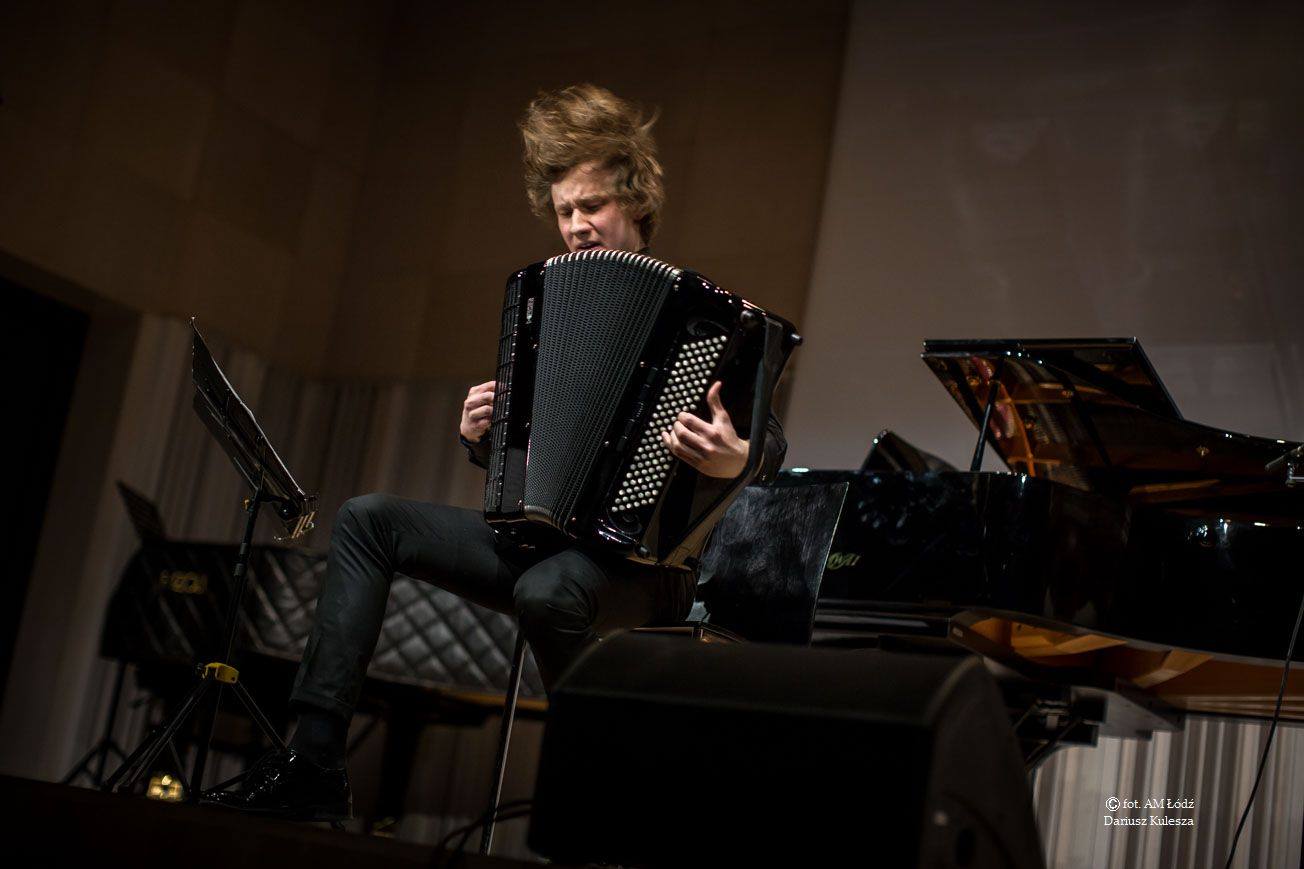
Faculty of Performing Arts
Field of study: VOCAL STUDIES
Full-time 1st cycle studies (4 years)
majors:
vocal and acting performance
The study program is addressed to secondary school graduates (of high schools, technical schools, music schools) who successfully passed secondary school-leaving exams, have vocal and acting predispositions and are interested in developing their skills.
GRADUATE PROFILE
-
The offer of the 1st cycle studies is addressed to talented graduates of secondary comprehensive and music schools, with musical talent and intellectual potential. The aim of the 1st cycle studies is to prepare students for work in the professions directly connected with singing in musical theatres. Completion of the studies enables the graduate to undertake a job in cultural institutions, to organize events and to host concerts.
-
The graduate of the 1st cycle studies possesses the following competences:
- has theoretical knowledge and skills allowing him/her to design and develop his/her own artistic ideas; has theoretical knowledge of history of music; is familiar with musical styles and related performance traditions; is familiar with elementary vocal repertoire;
- has the ability to effectively practice his/her vocal technique and hence the potential of artistic development through his/her own independent work; demonstrates the ability to work in a group and develop joint artistic projects; has basic theoretical knowledge of physiology, anatomy and hygiene of the voice apparatus; has the skill of aural recognition of a musical material, is able to memorize it and make free use of it; has basic theoretical knowledge and practical skills of acting, stage diction and stage movement, which enables him/her to perform artistic tasks on stage; has the ability to create a stage image relevant to a given artistic undertaking; has basic knowledge of the Italian language and other foreign languages, which enables him/her to memorize and properly interpret works from the world vocal literature;
- shows creativity, ability to plan and effectively communicate with others; is able to think flexibly and to formulate his/her own ideas.
ENTRANCE EXAMS
- MAJOR EXAM
- Candidates have to prepare at least three vocal pieces with accompaniment (preferably two arias and one song, or one aria and two songs). The exam is held in two stages: 1st stage – candidates perform two works, 2nd stage – also two works (one of which may be the same as in 1st stage). Piano scores of performed works should be submitted before the exam.
- BASIC EXAMS
- ACTING AND MOVEMENT PREDISPOSITIONS TEST
Candidates should prepare one short poem and short prose (3 minutes – 1 page). For the dance and movement test, candidates should bring a gym outfit and proper shoes. - AURAL PREDISPOSITIONS TEST
Candidates who completed either primary or secondary music schools will be tested accordingly to their prior education. - WRITTEN WORK
on a topic selected from the three available
- ACTING AND MOVEMENT PREDISPOSITIONS TEST
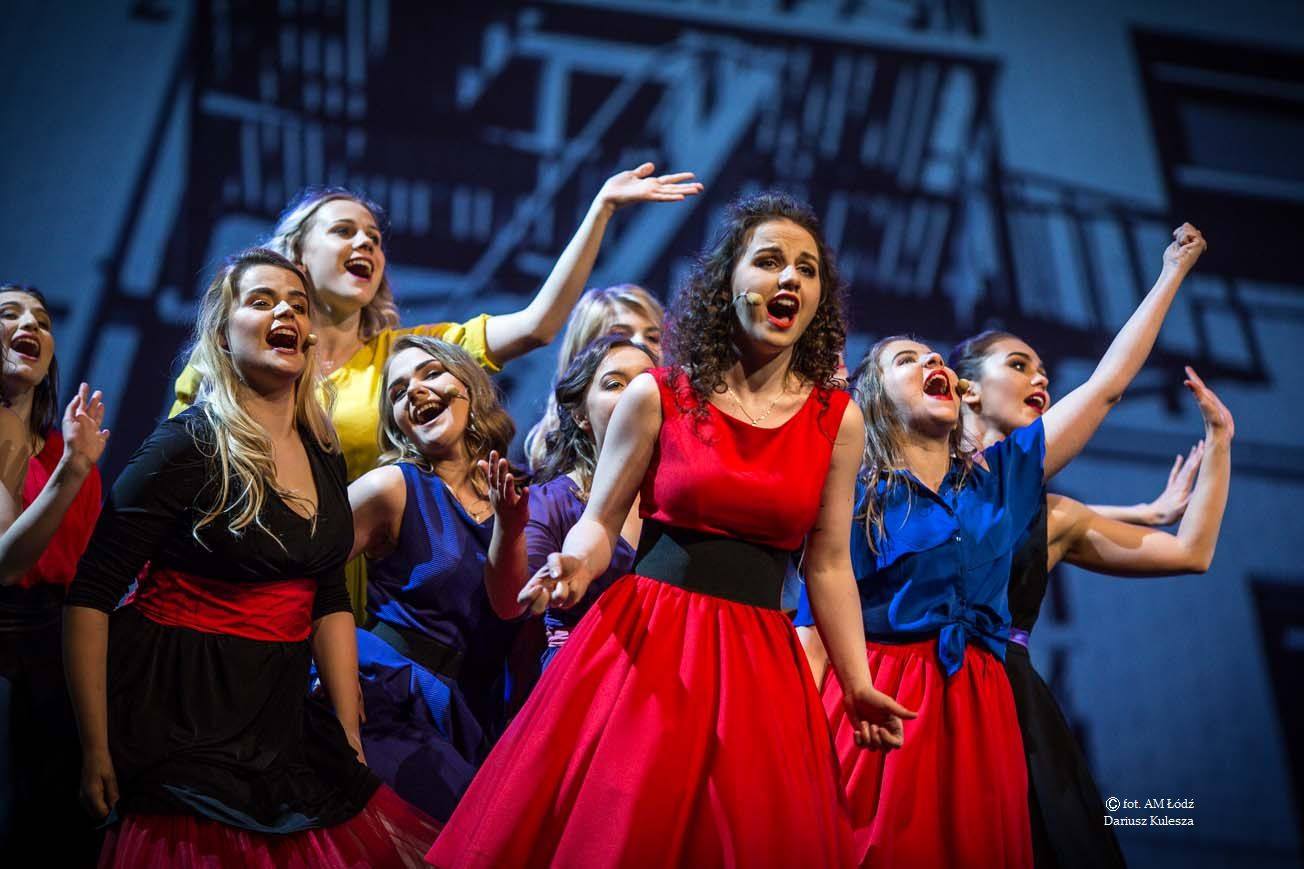
Faculty of Performing Arts
Field of study: VOCAL STUDIES
Full-time 2nd cycle studies (2 years)
majors:
vocal and acting performance
The offer of 2nd cycle studies is addressed to gifted graduates of the 1st cycle studies, with a particular vocal talent, substantial knowledge of music, as well as high artistic and intellectual potential, ensuring best results in the course of theoretical and practical training. The objective of the 2nd cycle studies is to prepare students for autonomous artistic activity. The graduate is ready to pursue stage and concert activity as a solo singer and to collaborate within vocal, operatic, operetta or oratorio ensembles.
GRADUATE PROFILE
-
The graduate receives a diploma of the 2nd cycle studies in vocal performance and can master one’s skills during postgraduate studies. One has practical skills necessary to pursue an independent artistic activity. The graduate is prepared – as a soloist – to pursue stage and concert activity in collaboration with vocal, operatic and oratorio ensembles. He/she is also qualified to teach in music schools of all degrees. The graduate is able to design and develop their own artistic concepts. Based on the experience gained during studies and through a mindful selection of the major, they can plan their further professional career.
-
Pedagogical qualification, compliant with general educational standards for the profession of a teacher, is acquired simultaneously by attending courses within Pedagogical Studies.
-
The graduate of the 2nd cycle studies possesses the following competences:
- has a highly-developed artistic personality, which – thanks to extensive theoretical knowledge and practical skills – enables them to create and develop their own artistic concepts; possesses a deepened theoretical knowledge of broadly understood vocal literature and of its relations with other disciplines;
- has the ability to perform a wide vocal repertoire; demonstrates ease of interpretation, supported by knowledge of musical styles and performance traditions; has the ability to work in a team and to cooperate with others within joint artistic projects; has the ability to present their artistic concepts and programs in public, to establish contact with the audience through evocative and compelling conveyance of ideas behind musical works; has the ability to memorize and publicly present a vocal part in a theatrical work (opera, operetta) or stage work (cantata, oratorio, song cycle);
- exhibits creativity and independence in formulating thoughts and beliefs, and the skill of criticism and self-assessment; demonstrates the ability to develop elaborate presentations in writing and speech on the topics related to the major.
ENTRANCE EXAMS
- SOLO SINGING
The candidate performs four selected pieces.
- INTERVIEW covering:
- the candidate’s motivation to continue studies;
- focus of the candidate’s major-related interests;
- expectations regarding chosen major;
- plans concerning the candidate’s professional career.
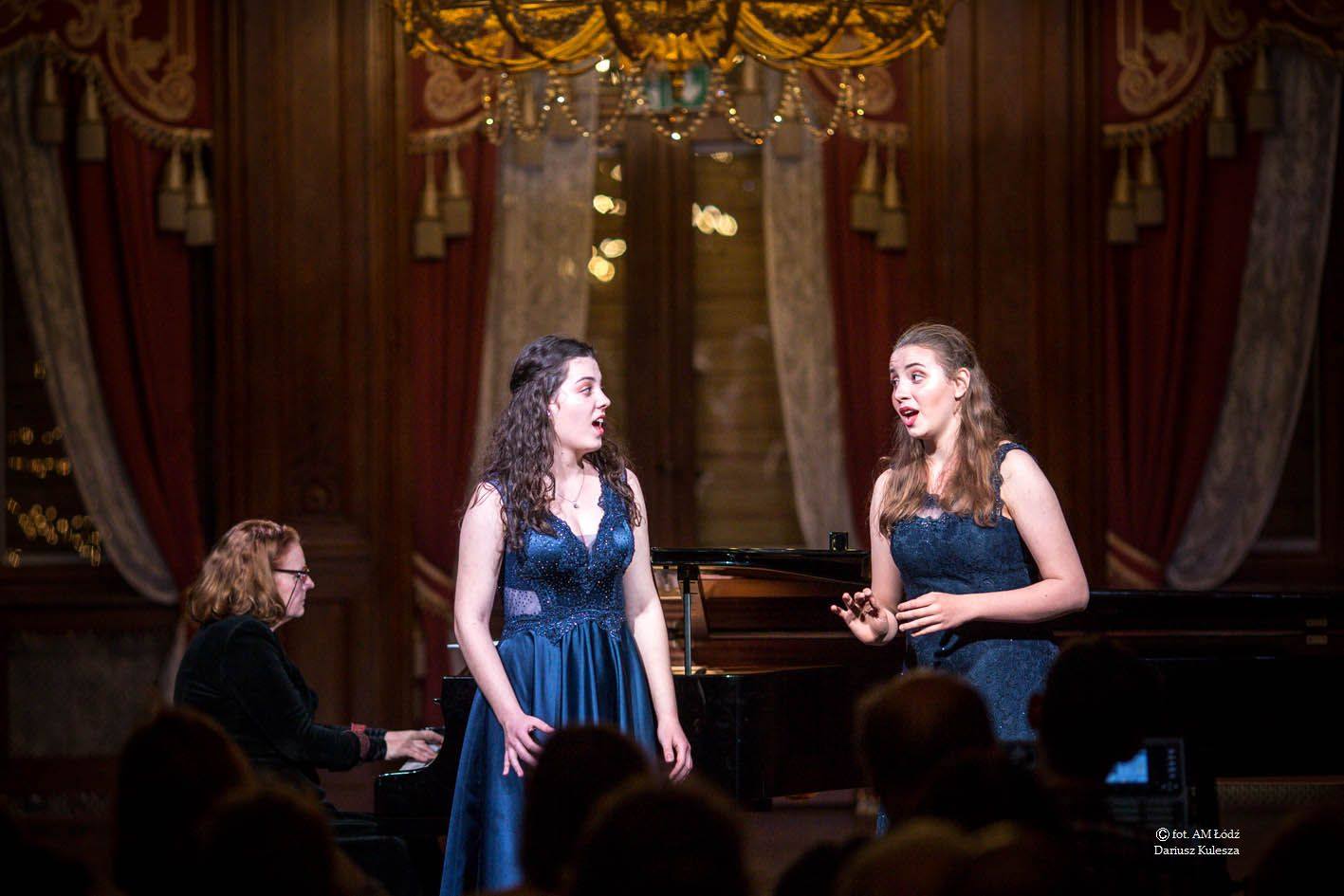
Faculty of Performing Arts
Field of study: VOCAL STUDIES
Part-time studies (3 months)
STUDIES WITHIN THE EUROPEAN OPERA ACADEMY
The study program is conducted within the European Opera Academy modules, also available as part of the Erasmus+ exchange program.
In September 2016, the international opera project named “European Opera Academy” was launched. It was initiated by the Conservatory of Maastricht. This educational platform combines an exchange of experiences in the field of opera and contemporary theatre with the development of individual needs and talents of participating students. It offers exceptional training opportunities through varied teaching modules in selected higher music education institutions all over Europe.
The study program is addressed to students and graduates of higher music education schools with a diploma of the 1st cycle or 2nd cycle studies, who aim to develop their practical knowledge and skills in terms of stage arrangement of an operatic part.
The program of the European Opera Academy gives students an opportunity to gain experience with a professional preparation of a selected role from opera under supervision of renowned specialists, and next to perform it on stage during the show.
ENTRANCE EXAM
Candidates are qualified for studies by a group of pedagogues on the grounds of submitted video materials. Detailed information on the requirements regarding video materials is given on the www.europeanopera.academy website. Recruitment process for all available modules of the European Opera Academy is conducted via an application form posted on the www.europeanopera.academy website, in accordance with the rules and regulations given therein.
DATES OF THE ENTRANCE EXAMS FOR THE ACADEMIC YEAR 2022/2023:
September 23-25, 2022
DEADLINES FOR SUBMISSION OF DOCUMENTS:
September 10, 2022
The University offers study programs in accordance with the Bologna system: first cycle studies (3 or 4 years), second cycle studies (2 years). Graduates of the first cycle studies receive the title of Licencjat [BA] in the completed field of study and major and they are entitled to continue their education at second cycle studies. Graduates of the second cycle studies receive the title of Magister Sztuki [MA] in the completed field of study and major.
Faculty of Creativity, Interpretation, Music Education and Production
specialties conducted in Polish:
composition, film music composition, theory of music, symphonic and choral conducting, eurhytmics, art education, music education and animation, music therapy, music production, sound engineering, music in media
Faculty of Instrumental Performance
specialties conducted in English:
piano, organ, harpsichord, string instruments, wind instruments, percussion
specialties conducted in Polish:
piano, organ, harpsichord, string instruments, wind instruments, percussion, early musical instruments, accordion, guitar, harp, sacred music
Faculty of Performing Arts
specialties conducted in English:
vocal and acting specialisation
specialties conducted in Polish:
vocal and acting specialisation, musical, choreography and dance techniques, somatics in dance and therapy
Faculty of Jazz and Popular Music
specialties conducted in Polish:
jazz instruments, stage vocal music
Candidates entitled to non-fee studies:
- citizens of Poland;
- foreigners with residence permit;
- foreigners granted the refugee status given by the Republic of Poland;
- foreigners granted a temporary protected status in the territory of the Republic of Poland;
- migrating workers, being citizens of European Union countries; Swiss Confederation or member states of origin of European Free Trade Association (EFTA) – parties of the agreement on European Economic Area and members of their families if living in the territory of the Republic of Poland;
- foreigners granted, in the territory of the Republic of Poland, permission for long-term residence of European Union;
- foreigners granted, in the territory of the Republic of Poland, permission for temporary residence in regard to circumstances mentioned in art. 127, art. 159 item 1 or art. 186 item 1 point 3 or 4 of the Act on foreigners from the 12th December 2013 (Journal of Laws no 1650);
- foreigners granted subsidiary protection in the territory of the Republic of Poland;
- citizens of European Union countries, member states of origin of European Free Trade Association (EFTA) – parties of the agreement on European Economic Area or Swiss Confederation;
- holders of Polish Card.
FEE FOR THE ENTRANCE EXAM: 150 PLN
Information on the fees applicable to the 2022/2023 academic year will be announced soon.
FEES applicable in the academic year 2021/2022:
- Foreigners enrolling in 1st or 2nd cycle studies conducted in English are obliged to pay the following fees (covering one year of studies):
- instrumental studies: PLN 26,000
- vocal studies: PLN 31,000
- Fee for postgraduate instrumental or vocal studies: PLN 15,400
- Fee for preparation course of one year is PLN 21,000
- Fee for one year of artistic internship, in Polish, with no accompanist: PLN 6,300 (one hour per week of the main subject)
- Fee for one year of artistic internship, in Polish language, with accompanist: PLN 9,450 (one hour per week of the main subject with accompanist)
- Fee for one year of artistic-scholarly internship, in English language, with no accompanist: PLN 17,000 (one hour per week of the main subject without accompanist, English language, history of musical form and styles)
- Fee for one year of artistic-scholarly internship, in English language, with accompanist: PLN 22,000 (one hour per week of the main subject with accompanist, English language, history of musical form and styles)
- Persons of Polish origin undertaking education on the paid basis pay the fees reduced by 30%
- Foreigners pay the above fees into the University of Music bank account
- The fees can be paid in two installments. The deadline for the payment for the first term is the 15th October, for the second term the 15th March
- No payment on the dates specified above will result in not admitting to the term exams as well as in charging statutory interest from the day when the payment is due
- Statistical distribution of grades
at the Grazyna and Kiejstut Bacewicz University of Music in Lodz (PL LODZ04) download .pdf file










